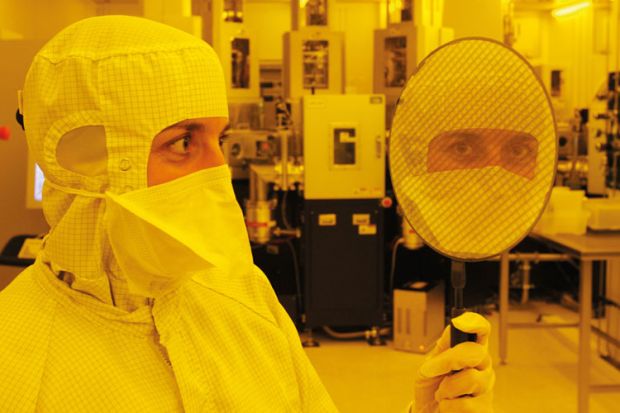A secret dossier that warns that fraud in biomedical research is even more prolific than feared is being considered by Jo Johnson, the universities and sciences minister, documents passed to Times Higher Education appear to show.
Senior figures in UK science have warned that despite decades of awareness of the cultural problems driving misconduct in science, little progress has been made.
The draft "Confidential dossier on fraud in UK biomedical research" concludes that some research institutes, university administrators, funders, journals and science leaders have been covering up malpractice.
The past three decades have seen an “alarming” increase in paper retractions, mainly due to misconduct, it warns.
It catalogues a series of high-profile misconduct scandals involving senior scientists in the UK and abroad.
The dossier points out that although the number of retracted papers is tiny compared with the huge number published, only a small proportion of articles are genuinely scrutinised.
It calculates that of papers that are actually closely checked, as many as one in 20 contain errors or falsifications.
Another reason that the problem may be larger than thought is that “scientists and journals are extremely reluctant to retract their papers, even in the face of damning evidence”, meaning that misconduct may go unreported.
It warns that the peer review process “is clearly not fit for purpose”, with journal referees failing to spot “blatant errors and inconsistencies”.
A letter commenting on the dossier bearing the crest of the Royal Society, with the author’s name blanked out, was also passed to THE. It appears to be a response to Mr Johnson, suggesting that the anonymous author had been sent the dossier by the minister.
It explains that the dossier was commissioned by Mr Johnson’s predecessor, Greg Clark, as “part of a more extensive review” but was to remain confidential.
‘We do have a problem’
The letter, sent in September, argues that the dossier “creates the impression that fraud is much more common than it actually is”, although it acknowledges that “we do have a problem” and adds that “too many institutions” are ready to “sweep it under the carpet”.
“The readiness to scapegoat juniors and exonerate seniors is disgraceful,” it adds. “I can confirm that there have been allegations of intimidation, and in my view, the authorities have not property investigated them.”
The source of the dossier and the letter could not be independently verified by THE. A spokesman for the Department for Business, Innovation and Skills said that the department had not commissioned or been involved in the document, but declined to comment on whether Mr Johnson had seen it.
A spokeswoman for the Government Office for Science said that it had “no knowledge of the document”.
A spokesman for the Royal Society said that it had “not seen the alleged dossier in question or been asked to comment on it”.
“It is possible that individual fellows of the society have been asked to comment and have responded on a personal basis,” he added.
Intense pressure to publish positive, groundbreaking results in prominent journals has been blamed for a perceived rise in scientific misconduct, which can range from the “hacking” of results data to engineer statistically significant results to outright fabrication.
Last month, senior figures in UK science warned that there had been little progress in changing this culture at a workshop on the problem organised by the Nuffield Council on Bioethics.
Speaking in London under the Chatham House rule that prohibits the identification of speakers without their permission, one said that scientists had for decades been aware of the problems, which were “depressingly familiar”.
Another leading figure said that the “research system is riddled with perverse incentives” and is focused around “[individual] people and promotion” rather than rewarding teams.
There was an “obsession” with publishing in high-profile journals, which had a “cultural bias for positive results”, they said.
There is “far too much focus on the original paper” and too little on meta-analysis that synthesises previous research, they added.
Another participant at the conference said that it was “naive” to expect universities to change research culture without financial incentives.
It was also pointed out by another attendee that 15 per cent of last year’s research excellence framework was based on the “environment” at a university – something that could measure safeguards against misconduct – but this aspect of the assessment was “seen as a wishy-washy thing you can blah-blah through”.
POSTSCRIPT:
Print headline: Secret dossier warns of scale of research fraud
Register to continue
Why register?
- Registration is free and only takes a moment
- Once registered, you can read 3 articles a month
- Sign up for our newsletter
Subscribe
Or subscribe for unlimited access to:
- Unlimited access to news, views, insights & reviews
- Digital editions
- Digital access to THE’s university and college rankings analysis
Already registered or a current subscriber?










